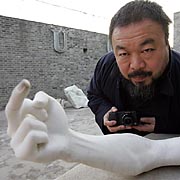
During the Duanwu festival (early June this year), the parents of my piano students offered me zongzi. They are traditional Chinese treats and most families still make these savory and sweet packets at home. Filled with sticky rice, meat or sweet bean paste, each zongzi is wrapped in lotus leaves and steamed to perfection. The other activity during this traditional holiday is the dragon boat race.
But the origin of this festival was tragic. Qu Yuan (340-278 BCE), poet and adviser to the king of Chu, was banished from the court and exiled. He committed suicide by throwing himself into the river. The common folks tried desperately to save him but to no avail. They rode their boats into the middle of the river banging gongs and drums to scare the fish. Some threw rice and meat into the water to prevent his body from being eaten.
Since Qu Yuan, many poets who held official positions had unpleasant endings. It is a strange contradiction. On the one hand, the government actively looked for the best minds by holding national examinations. On the other hand, the best minds they collected were often rejected and destroyed.
After spending over two months in jail, Chinese artist Ai Weiwei was finally released on June 22. His future is uncertain. His ability to speak his truth questionable. Now Ai stands in the long line of artists, poets, patriots and lovers. Like Qu Yuan, whose legacy is still being remembered today, Ai will go down in history long after the regimes are gone.
Photo by Tina Hager.

The irony of seeking out the best minds, of any kind for any purpose, only to reject what they then offer is common throughout history. In one’s day to day life, whether at work or in a social circumstance, however pleasant, one may then be excused for not replying to anyone who asks for an “honest and open” or “frank” response or evaluation of something that they have said or done.
I recall making a silly boast, that a person’s private room tells on them. Well, the hostess of the party invited me and a few of the guests into her bedroom, she lived in a flat with four other women. Well, I noticed, first, the posters on the wall, all of old style, Hollywood, movies and all had a man lifting a woman up or embracing her. I said that the person was an unrealistic romantic, longing to be taken up by romance. The guitar, in its dusty case, indicated that the person has put aside their creativity and art. The number of small bric a brac or other such, all carefully arranged showed the person to be controlling and the diary left out, but locked showed a conflict between wanting people to know about her and a desire for privacy. I was unaware of how she was reacting, but the deadly kind of silence that followed was, to say the least, uncomfortable. Popping balloons from the kitchen relieved everyone.